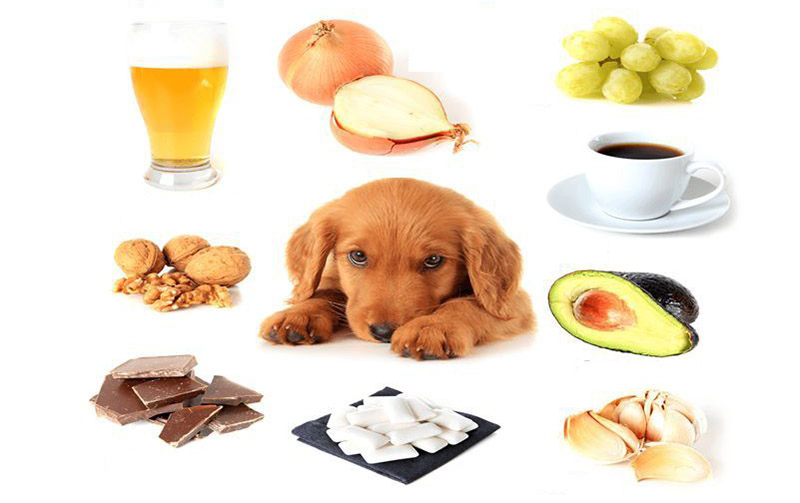Caring for your pet’s health is not only a responsibility but also a way to ensure their happiness and companionship. Proper health management helps prevent potential risks, minimizes treatment costs, and keeps your furry friend in the best shape. Below is detailed information to help you provide the best care for your pet.
1. Signs That Your Pet May Be Sick
Early detection of illness is crucial for timely treatment and to avoid complications. Pay attention to the following symptoms:
1.1. Behavioral Changes
- Lack of Energy: If your pet becomes less active or seems uninterested in playing, it may indicate fatigue or discomfort.
- Unusual Aggression or Fearfulness: Illnesses like rabies or infections can cause sudden behavioral changes such as aggression or unexplained fear.
1.2. Physical Symptoms
- Excessive Shedding: Hair loss in patches or more than usual may result from skin infections, allergies, or nutrient deficiencies.
- Red, Swollen Skin or Bald Spots: Often linked to fungal infections, parasites, or allergic reactions.
- Eye Issues: Redness, discharge, or cloudiness in the eyes could indicate conjunctivitis, dry eye, or corneal diseases.
1.3. Digestive and Respiratory Symptoms
- Diarrhea or Constipation: These could stem from digestive disorders, parasitic infections, or inappropriate diets.
- Coughing, Wheezing, or Difficulty Breathing: Commonly seen in pneumonia, colds, or respiratory allergies.
If you notice any of these signs, consult a veterinarian immediately for proper diagnosis and treatment.

2. Common Pet Diseases and Prevention Tips
Understanding common diseases in pets helps you create an effective care and prevention plan.
2.1. Rabies
- Cause: Rabies virus transmitted through bites or scratches from infected animals.
- Symptoms: Aggression, hypersalivation, fear of water, seizures.
- Prevention:
- Regular rabies vaccinations (once a year).
- Limit your pet’s exposure to wild animals.
2.2. Skin Infections (Dermatitis)
- Cause: Allergies (food, environment), fungal infections, or external parasites.
- Symptoms: Persistent itching, scratching, redness, or flaky skin.
- Prevention:
- Routine grooming and bathing with pet-friendly shampoos.
- Keep your pet’s living environment clean and dry.
2.3. Parasite-Related Illnesses (Fleas, Ticks, Worms)
- Cause: Exposure to contaminated environments or infected animals.
- Symptoms: Itching, hair loss, diarrhea, or an abnormally swollen belly.
- Prevention:
- Regular deworming (every 3-6 months as per the vet’s advice).
- Use flea and tick prevention products like collars or sprays.
- Avoid allowing your pet to roam in dirty or damp areas.

3. How to Care for Pets After Surgery or Illness
Recovery after surgery or illness is a sensitive period requiring special care and attention.

3.1. Maintain a Clean Environment
- Keep the Space Hygienic: Ensure your pet’s resting area is clean, dry, and free from dirt or germs.
- Avoid Loud Noises: Create a calm and quiet environment to help your pet rest peacefully.
3.2. Provide a Suitable Diet
- Feed soft and easy-to-digest food like porridge, wet food, or meals recommended by the veterinarian.
- Add supplements or vitamins to boost immunity if necessary.
- Avoid foods that may cause allergies or digestive problems, such as milk, spicy foods, or overly salty snacks.
3.3. Monitor Wound Care
- Clean wounds with antiseptic solutions or as directed by the vet.
- Change bandages regularly to prevent infection.
- Watch for signs of infection like redness, swelling, or pus, and seek immediate medical attention if these occur.
3.4. Restrict Physical Activities
- Avoid letting your pet run, jump, or climb to prevent reopening surgical wounds or worsening injuries.
- Use a crate or leash when necessary to control their movement.
3.5. Schedule Follow-Up Visits
Take your pet for regular check-ups to monitor their recovery progress and ensure they are healing properly.
Caring for your pet’s health goes beyond disease prevention; it reflects your love and dedication to your furry companion. By staying informed and providing proper care, you can ensure your pet remains healthy, happy, and a loyal friend for years to come!
Xem thêm: How to Handle Cat Export Procedures at Tan Son Nhat Airport
